Planning a Uganda safari often feels like navigating a maze of conflicting information. You’ll find everything from shoestring backpacker tales to luxury lodge advertisements, leaving you wondering: what will this actually cost? More importantly, how can you experience Uganda’s incredible wildlife without breaking the bank—or compromising on once-in-a-lifetime experiences?
The good news is that Uganda accommodates virtually every budget level, from adventurous budget travelers to luxury seekers. Understanding the cost components and where you can splurge versus save makes all the difference between a dream safari and financial stress.
Understanding the Major Cost Components
Before diving into specific budgets, let’s break down what you’re actually paying for on a Uganda safari. Understanding these elements helps you make informed decisions about where to allocate your funds.
Gorilla and Chimpanzee Permits: Your Biggest Single Expense
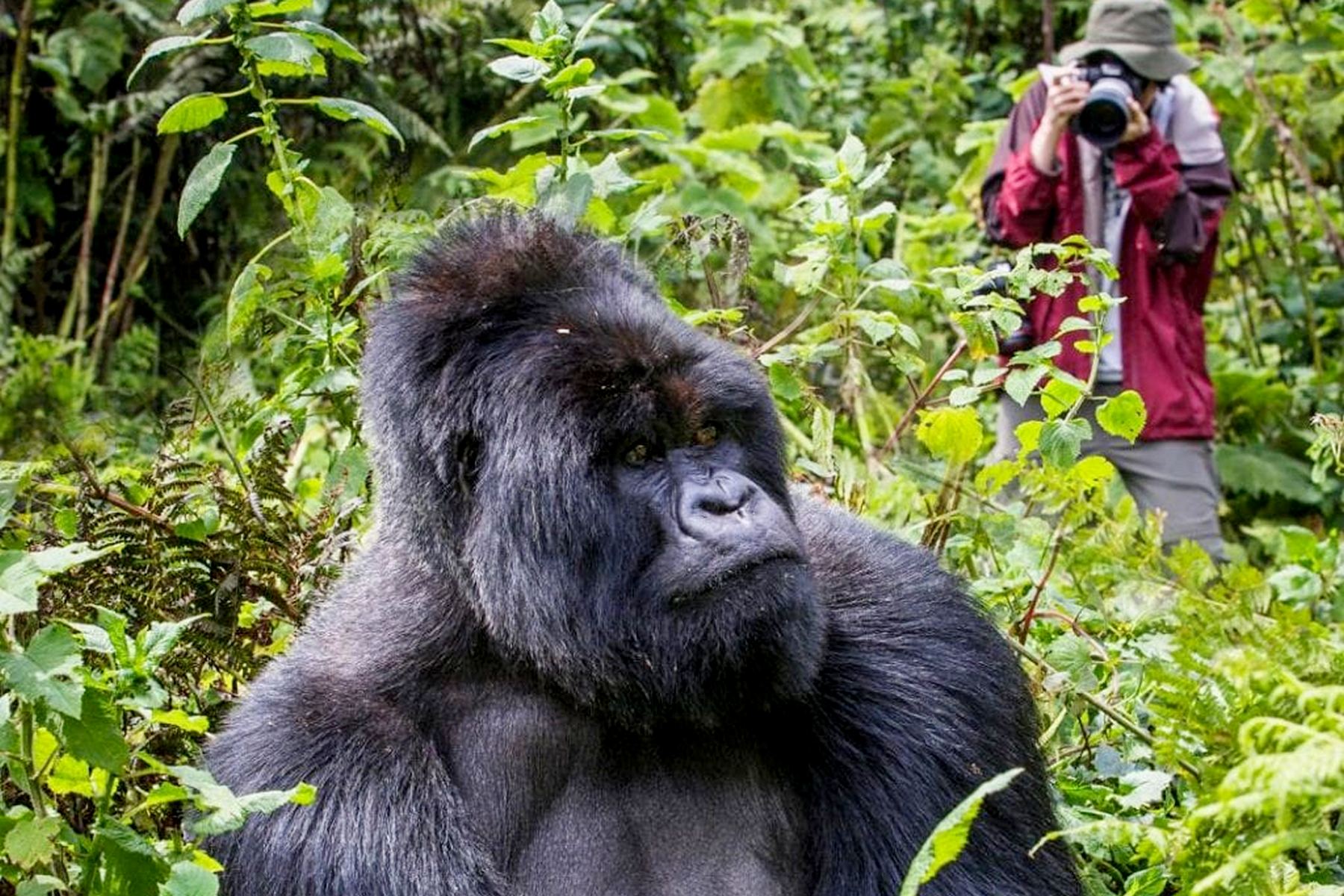
Gorilla Trekking Permit: $800 per person per trek (foreign non-residents). This is your largest single cost, but it’s non-negotiable if you want to see mountain gorillas. The permit includes one hour with a habituated gorilla family, park entrance, ranger guides, and security. Permits must be booked well in advance—sometimes six months or more for peak season.
Gorilla Habituation Experience: $1,500 per person. This extended four-hour experience in Bwindi’s southern sector allows you to observe gorillas as researchers habituate them to human presence. It’s more expensive but offers incredible depth for serious wildlife enthusiasts.
Chimpanzee Trekking Permit: $250 per person in Kibale Forest or Budongo Forest. Similar to gorilla trekking but with our closest living relatives, chimpanzees are highly active and entertaining to watch.
Chimpanzee Habituation Experience: $300 per person in Kibale. Spend a full day following chimps from their morning nest-building through their daily activities.
These permits are your foundation costs. Everything else—accommodation, transport, meals, other activities—builds around them.
Accommodation: From Camping to Luxury Lodges
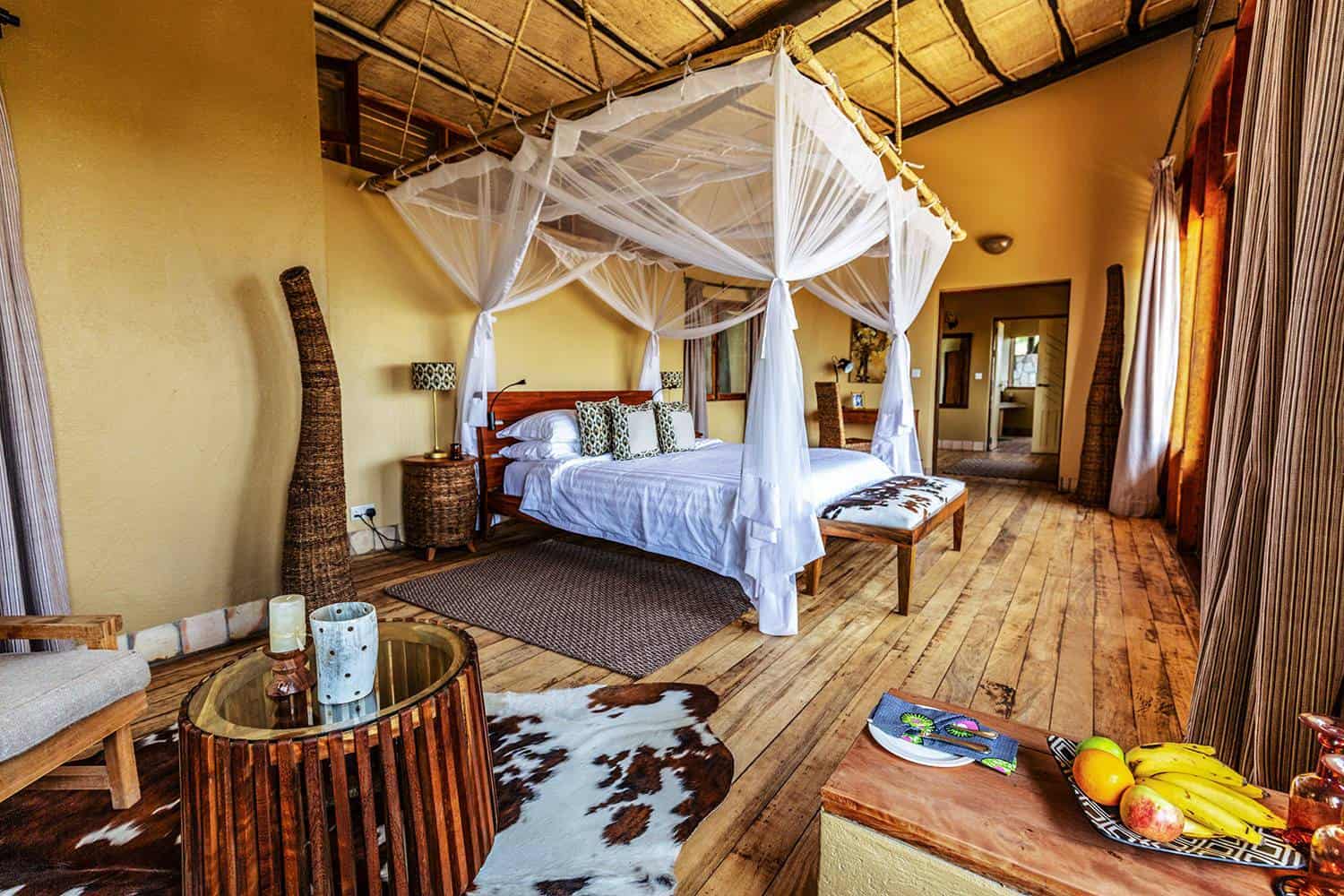
Uganda’s accommodation spectrum is remarkably broad. You’ll find basic camping options near most parks, comfortable mid-range lodges with excellent service, and world-class luxury properties that rival anything in Africa.
Budget Camping/Hostels: $10-40 per person per night. Basic bandas (simple huts), community campsites, or budget guesthouses near parks. Facilities are simple but clean, often with stunning views.
Mid-Range Lodges: $150-300 per person per night (full board). Comfortable rooms or safari tents, good food, often with swimming pools and beautiful settings. This category offers excellent value—you’re not sacrificing much compared to luxury options.
Luxury Lodges: $400-1,000+ per person per night (full board). High-end finishes, gourmet meals, infinity pools, spa services, exceptional guiding, and prime locations. Properties like Sanctuary Gorilla Forest Camp, Bwindi Lodge, or Kyambura Gorge Lodge fall here.
Ultra-Luxury: $1,000-2,000+ per person per night. Exclusive-use villas, private guides, helicopter transfers, and highly personalized service.
Transportation: Getting Around Uganda
How you move between parks dramatically impacts your overall cost.
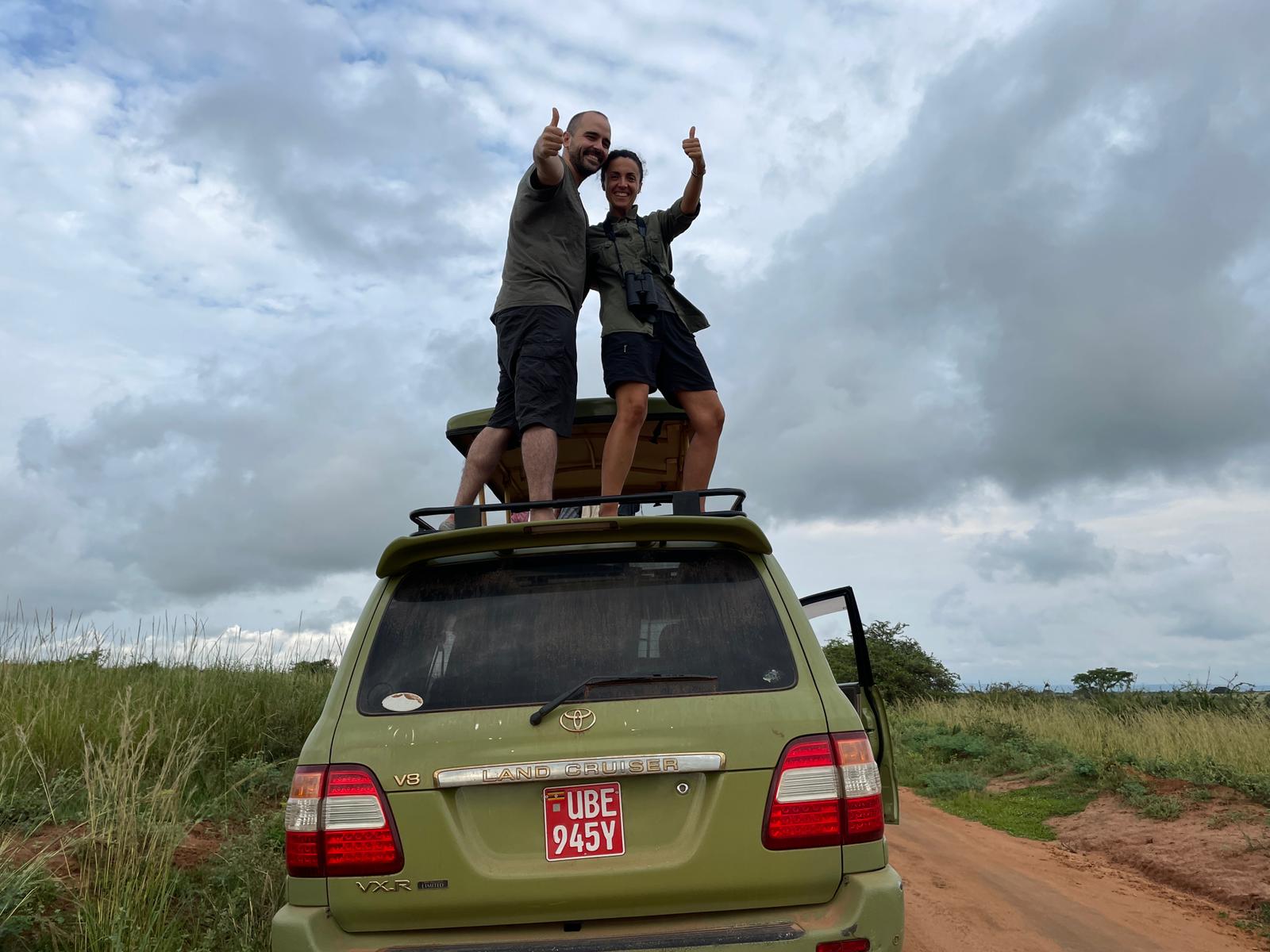
Self-Drive Vehicle Rental: $60-120 per day for a 4WD, plus fuel ($1.20-1.50 per liter). This is the most economical option if you’re comfortable with African driving conditions and navigation. However, you’ll miss the expertise of a dedicated guide.
Driver-Guide with Vehicle: $150-250 per day including fuel, depending on vehicle type and tour operator. This is standard for most organized safaris. Your guide drives, navigates, spots wildlife, and provides interpretation—invaluable for first-timers.
Domestic Flights: $200-450 per flight segment. Aerolink Uganda and other charter companies fly to airstrips near major parks, saving significant driving time. A flight from Entebbe to Kihihi (near Bwindi) takes 90 minutes versus 8-10 hours driving.
Group Tours: Sharing vehicles and guides with other travelers significantly reduces per-person transport costs, often making safaris accessible to budget travelers.
Park Entrance Fees
Beyond gorilla/chimp permits, you’ll pay park entrance fees:
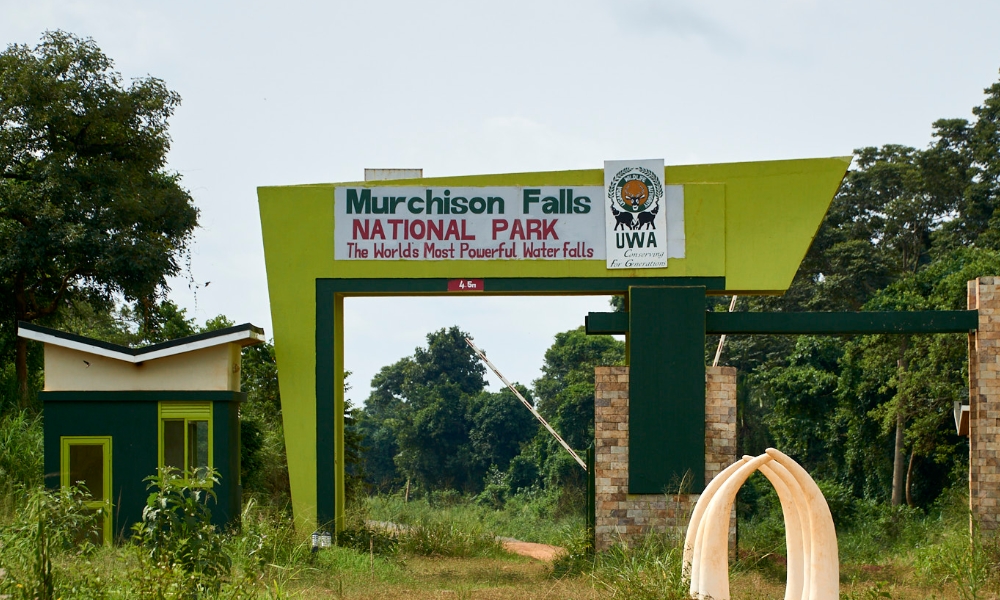
- Savannah Parks (Queen Elizabeth, Murchison Falls, Kidepo Valley): $40-50 per person per 24 hours
- Primate Parks (Kibale Forest): $40 per person per day
- Smaller Parks and Reserves: $15-35 per person per day
Game drives and boat safaris within parks cost extra: $20-30 per person per activity.
Meals and Miscellaneous
If not included in accommodation, budget $20-50 per day for meals depending on your standards. Local restaurants serve hearty food for $5-10 per meal, while hotel restaurants run $15-30 per meal. Tips for guides, porters, and lodge staff typically add $10-20 per day to your budget.
Budget Tier Breakdown: Three Safari Approaches
Let’s look at three realistic budget levels for a 7-day Uganda safari including gorilla trekking, savannah parks, and primate experiences.
Budget Safari: $2,000-3,000 Per Person
What You Get: Basic but comfortable accommodations, group tours with shared vehicles, essential experiences without luxury frills.
Sample 7-Day Itinerary Costs:
- Gorilla permit: $800
- Chimpanzee permit (Kibale or Budongo): $250
- Accommodation (6 nights camping/budget lodges): $180-240
- Shared ground transport and guide: $400-500
- Park fees (Queen Elizabeth, Kibale): $180
- Meals not included in accommodation: $100-150
- Boat safari on Kazinga Channel: $30
- Tips and miscellaneous: $100
Total: Approximately $2,040-2,250 per person
How to Make It Work:
- Book permits directly through Uganda Wildlife Authority or through a budget operator
- Join scheduled group departures to share vehicle costs
- Camp or stay in basic bandas near parks
- Travel in shoulder season for better availability
- Skip the gorilla habituation experience and luxury boat trips
- Prepare for longer drives; avoid domestic flights
- Bring snacks and water to minimize restaurant costs
What You’re Sacrificing: Comfort and privacy primarily. You’ll share vehicles with others, accommodations are basic, and drives are longer. However, the actual wildlife experiences—the gorillas, chimps, and game drives—are identical to what luxury travelers see.
Mid-Range Safari: $3,500-5,500 Per Person
What You Get: Comfortable lodges, private guide and vehicle, all main experiences, good food, and shorter travel days.
Sample 7-Day Itinerary Costs:
- Gorilla permit: $800
- Chimpanzee permit: $250
- Accommodation (6 nights mid-range lodges, full board): $1,200-1,500
- Private vehicle and driver-guide: $1,200
- Park fees: $180
- Activities (boat safaris, nature walks): $100
- One domestic flight to save driving time: $250
- Tips and miscellaneous: $150
Total: Approximately $4,130-4,430 per person
How to Make It Work:
- Book through reputable mid-range operators who bundle services efficiently
- Travel as a couple or small group to share vehicle costs
- Mix accommodation levels—splurge near Bwindi, economize near Queen Elizabeth
- Use one strategic flight to avoid the longest drives
- Book 3-4 months ahead for better lodge availability and rates
What You Get Extra: Privacy, comfort, flexibility, and significantly better food and amenities. Your guide can adjust the itinerary to your interests. Mid-range lodges often have spectacular locations with great wildlife viewing from the property itself.
Luxury Safari: $6,000-10,000+ Per Person
What You Get: Premium lodges, private guiding with deep expertise, domestic flights, exclusive experiences, gourmet dining, and impeccable service.
Sample 7-Day Itinerary Costs:
- Gorilla permit: $800
- Gorilla habituation experience: $1,500 (instead of standard trek)
- Chimpanzee habituation: $300
- Accommodation (6 nights luxury lodges, full board): $3,000-4,500
- Private vehicle and expert guide: $1,500
- Multiple domestic flights: $800
- Park fees and exclusive activities: $300
- Private boat charters, night game drives: $200
- Tips and miscellaneous: $300
Total: Approximately $8,700-10,200 per person
What You Get Extra:
- Accommodations that are destinations themselves—infinity pools overlooking Bwindi, private decks with savannah views
- Guides with naturalist certifications who enrich every moment
- Gourmet meals with wine pairings
- Spa treatments after long treks
- Private vehicle means flexibility to stay longer at sightings
- Photography hides and prime positioning for wildlife
- Virtually no time wasted on logistics
- Often includes laundry, premium beverages, and other inclusions
Money-Saving Strategies Without Sacrificing Quality
Regardless of your budget tier, smart planning stretches your dollar:
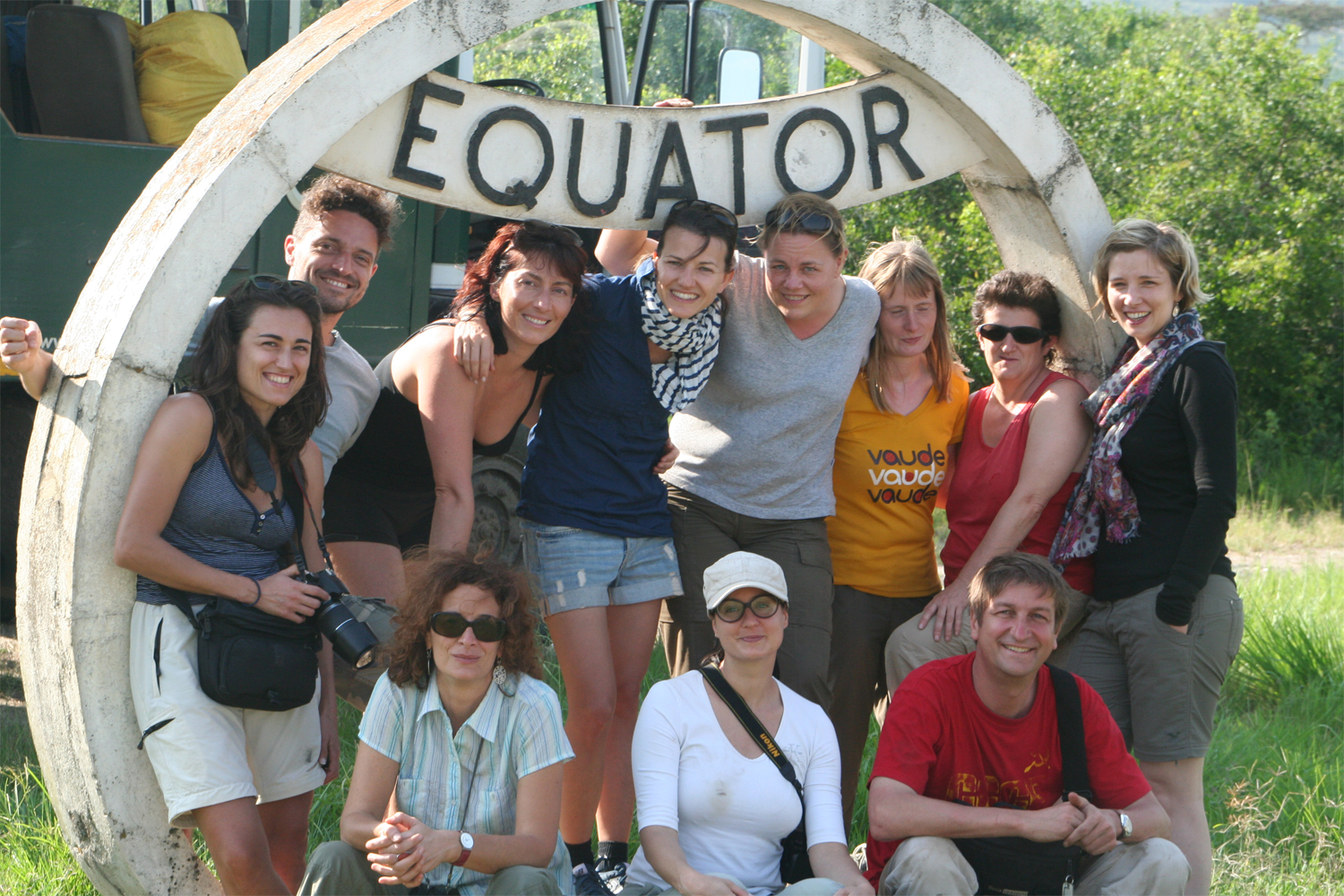
Book Well in Advance: Gorilla permits sell out during peak season (June-September, December-February). Last-minute premium costs or disappointed travelers are common. Book 4-6 months ahead.
Travel in Shoulder Season: March-May and October-November see fewer tourists and lower prices. Parks are greener, bird watching is spectacular, and you might save 20-30% on accommodation. Roads can be muddier, but 4WD vehicles handle them fine.
Mix and Match Accommodation: Splurge near Bwindi where you’ll be tired after gorilla trekking, economize near Murchison Falls where you’re mainly in the park. Most travelers barely use luxury amenities when game viewing all day.
Consider Group Tours for Solo Travelers: Solo travel supplements can double costs. Scheduled group departures absorb single supplements into shared pricing.
Book Directly vs. Through Operators: Booking flights and some accommodations independently can save money, but factor in the time, local knowledge, and risk management that tour operators provide. For first-timers, operators usually offer better value once you factor in their expertise.
Skip the Extras: Not every activity is essential. Do you need both standard gorilla trekking AND habituation? Both chimp tracking AND habituation? Multiple boat safaris? Prioritize what matters most to you.
Use Local Tour Operators: Ugandan-based operators often offer better rates than international companies while supporting the local economy. Research thoroughly and check reviews.
Travel in a Group: Four people sharing one vehicle and guide quarters your transport costs compared to solo travel. Even couples benefit significantly compared to solo travelers.
What’s Actually Worth the Money?
Having broken down the costs, let’s address value. Where should you splurge, and where can you comfortably economize?
Worth Every Penny:
- The gorilla permit itself—this is non-negotiable and priceless
- A good guide, especially for first-timers
- Decent accommodation near Bwindi (you’ll be exhausted after trekking)
- At least one boat safari on the Kazinga Channel or Nile
- Porter fees during gorilla trekking ($15-20)—they help you navigate terrain and support local communities
Consider Carefully:
- Gorilla habituation vs. standard trekking: amazing but not essential
- Multiple primate experiences: if budget-tight, choose gorillas OR chimps
- Luxury lodges: wonderful but mid-range offers 80% of the experience for half the cost
- Domestic flights: huge time-saver but not necessary if you don’t mind long drives
Probably Skip:
- Night game drives in parks where wildlife is reliably seen during day
- Multiple treks to the same species (second gorilla trek)
- Ultra-luxury lodges unless comfort is your priority
- Add-on activities that don’t align with your main interests
Sample Itineraries by Budget
7-Day Budget Safari ($2,200 per person)
- Day 1: Arrival Kampala (budget hotel)
- Day 2-3: Murchison Falls (camping, game drives, boat safari)
- Day 4: Transfer to Kibale (budget lodge)
- Day 5: Chimp tracking, transfer toward Bwindi (budget accommodation)
- Day 6: Gorilla trekking (community banda)
- Day 7: Return Kampala/Entebbe
7-Day Mid-Range Safari ($4,500 per person)
- Day 1: Arrival Entebbe (mid-range hotel)
- Day 2-3: Queen Elizabeth National Park (lodge, game drives, Kazinga Channel boat safari)
- Day 4: Kibale Forest (comfortable lodge)
- Day 5: Chimp tracking, transfer to Bwindi (fly to Kihihi to save time)
- Day 6: Gorilla trekking (mid-range lodge with stunning views)
- Day 7: Leisure morning, return to Entebbe
7-Day Luxury Safari ($9,000 per person)
- Day 1: Arrival Kampala (luxury boutique hotel)
- Day 2-3: Murchison Falls (luxury camp, private game drives, boat safaris)
- Day 4: Fly to Kibale (luxury lodge)
- Day 5: Chimp habituation experience, fly to Bwindi
- Day 6-7: Gorilla habituation experience, second morning trek or cultural visit (premier lodge)
- Day 8: Return to Entebbe via domestic flight
The Bottom Line: Uganda Safaris Are More Accessible Than You Think
Here’s the reality: yes, Uganda safaris represent a significant investment. The gorilla permit alone costs as much as some people spend on entire vacations. But compared to gorilla trekking in Rwanda ($1,500 permits) or the classic Kenya/Tanzania safari circuit, Uganda offers remarkable value.

More importantly, Uganda’s range of options means you don’t need unlimited funds to experience something extraordinary. A budget-conscious traveler can witness mountain gorillas, track chimpanzees, see tree-climbing lions, and cruise the Nile for under $3,000 total—less than many people spend on a week at a resort.
The key is honest self-assessment: what experiences matter most to you? Where do you value comfort versus adventure? Are you willing to rough it a bit for incredible wildlife encounters, or is relaxation between activities important to your enjoyment?
Whatever your budget, Uganda rewards thoughtful planning with experiences that transcend price tags. That moment when a silverback gorilla looks directly into your eyes costs the same $800 whether you sleep in a luxury lodge or a basic tent that night. The magic of Africa doesn’t discriminate by budget—it welcomes everyone willing to show up, be present, and respect the incredible wildlife that calls Uganda home.
Start planning, prioritize your must-haves, and prepare for a safari that exceeds expectations regardless of what you spend. The Pearl of Africa is waiting.
To book a safari in Uganda today- simply contact us now by sending an email to info@ugandasafaribookings.com or calling +256-700135510 to speak with the reservations team.
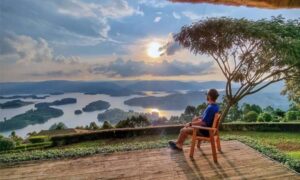
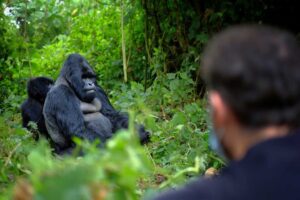
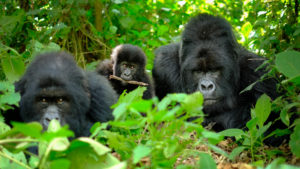

More Articles
Big 5 & Beyond: Discovering the Best Uganda Safaris for 2026
Bwindi Gorilla Trekking: The Crown Jewel of Uganda Safaris
Top Places To Watch Mountain Gorillas In The World